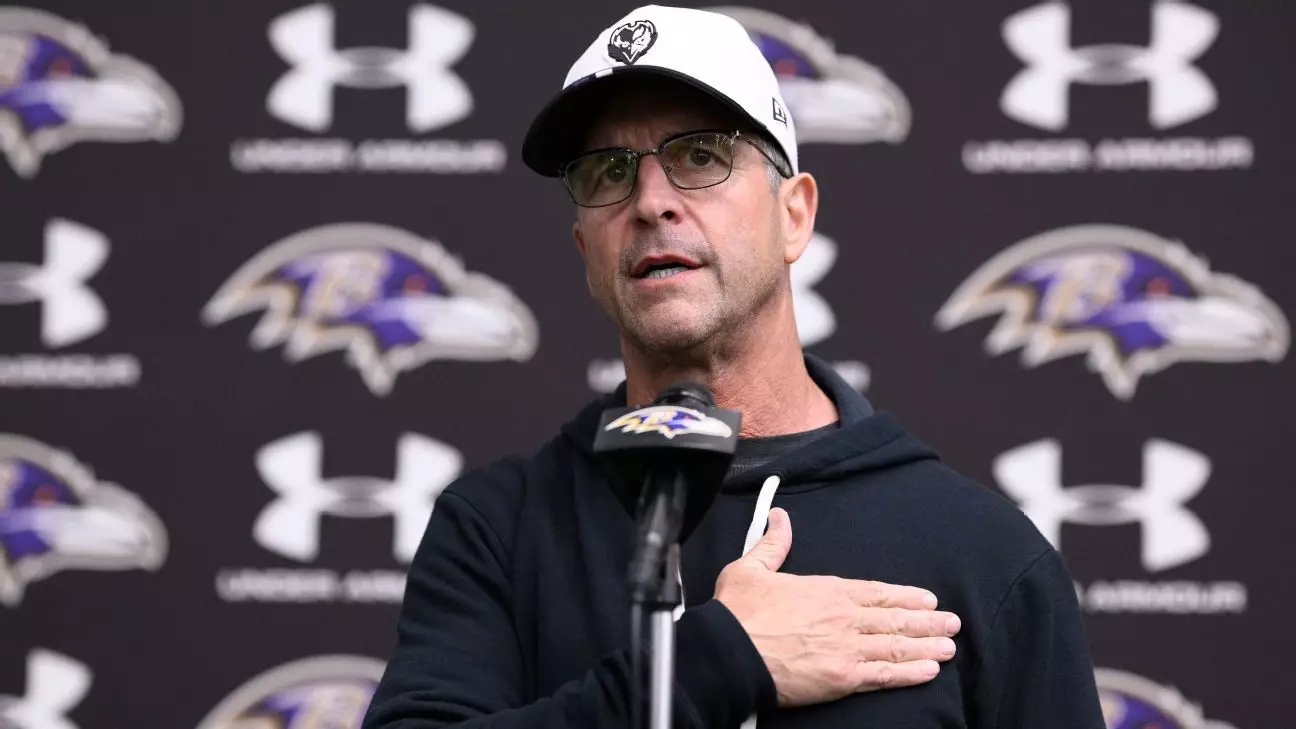The release of Justin Tucker, widely regarded as one of the greatest kickers in NFL history, has sent shockwaves through the football community. On May 5, the Baltimore Ravens made a decision that many would deem unthinkable—a choice that veers into a territory where sports meet legal and moral considerations. Coach John Harbaugh reflected on what he described as a “complex decision-making process,” collaborating with stakeholders like team owner Steve Bisciotti, president Sashi Brown, and general manager Eric DeCosta. The Ravens moved forward despite Tucker’s impressive stats, citing the need to focus on the upcoming season amid serious allegations against him.
This scenario underscores the delicate balance between competitive integrity and societal responsibility. Tucker, aged 35, faces accusations from multiple massage therapists alleging sexual misconduct, which complicates the team’s dynamics as they prepare for the upcoming season. Harbaugh’s assertion that it was a football decision seems simplistic against the backdrop of such serious claims. The essence of sportsmanship involves more than just winning; it includes upholding values that resonate beyond the realm of athletic performance.
Statistics Can’t Mask Controversy
Tucker’s performance last season holds weight in any discussion about the decision to release him. He marked his worst year statistically, missing ten kicks—a figure that eclipses any other season in his illustrious 13-year career. His astonishing 73.3% conversion rate on field goals not only ranked him at 31st among NFL kickers, it also raised questions about his consistency as the Ravens looked to the future. The franchise had already taken a monumental step by selecting Tyler Loop in the sixth round of the draft, signaling a shift in strategy—one that now includes competition for the kicking job in a way that hadn’t been seen before.
However, statistics alone cannot tell the complete story. Football is a high-stakes game, and decisions regarding key player positions cannot be dictated solely by numbers; the looming legal implications intertwine with the fate of the team. Harbaugh’s comments indicate that while performance is critical, the complexities of a player’s off-field actions threaten to overshadow their talent. In this case, the Ravens opted for stability by moving on from a player entangled in controversy, demonstrating that public image matters in professional sports.
Rookie Risks in a Championship Culture
With Tucker’s exit, Baltimore faces the daunting task of integrating a rookie kicker—Loop or undrafted John Hoyland—into what has traditionally been a high-pressure role. Harbaugh’s acknowledgment of the risks associated with employing a rookie kicker cannot be understated. The Ravens have a championship-caliber team, and relying on untested talent poses not just an athletic risk but could also shake the confidence of veteran players.
Yet, the Ravens are not strangers to taking calculated risks. Tucker himself entered the NFL as a rookie in 2012 and played a pivotal role in the Ravens’ Super Bowl victory that year. Optimism abounds that either Loop or Hoyland might rise to the occasion, echoing the organization’s faith in young talent. However, it raises important questions about the overall franchise ethos: when is the right time to gamble on potential versus proven ability?
Public and Personal Repercussions
The public response to the Ravens’ decision has been mixed. While some fans recognize the rationale behind releasing a player facing serious allegations, others lament the loss of a beloved sports figure who embodied clutch performances and record-breaking feats. Moreover, Tucker’s condemnation of the allegations as “unequivocally false” adds layers to an already intricate public narrative. As Tucker aims to rebuild his reputation, the Ravens must navigate fan sentiment while positioning themselves for success.
The conversation around Tucker also brings to the forefront the impact of social media and the 24-hour news cycle that amplifies claims and stirring controversy. In a time where reputations can be tarnished overnight, teams find themselves grappling not only with competitive choices but also with the broader implications of their actions. The Ravens’ decision has ignited a debate on accountability, ethics, and the responsibilities that come with being a public figure in the sports arena.
Ultimately, while football may prima facie appear as a realm of statistical analysis and athletic prowess, the realities of human behavior, legalities, and ethical considerations are profoundly interwoven. The Ravens’ actions not only impact the trajectories of their own season but reflect larger societal inquiries into how we perceive and judge athletic talent amid turbulent allegations.

